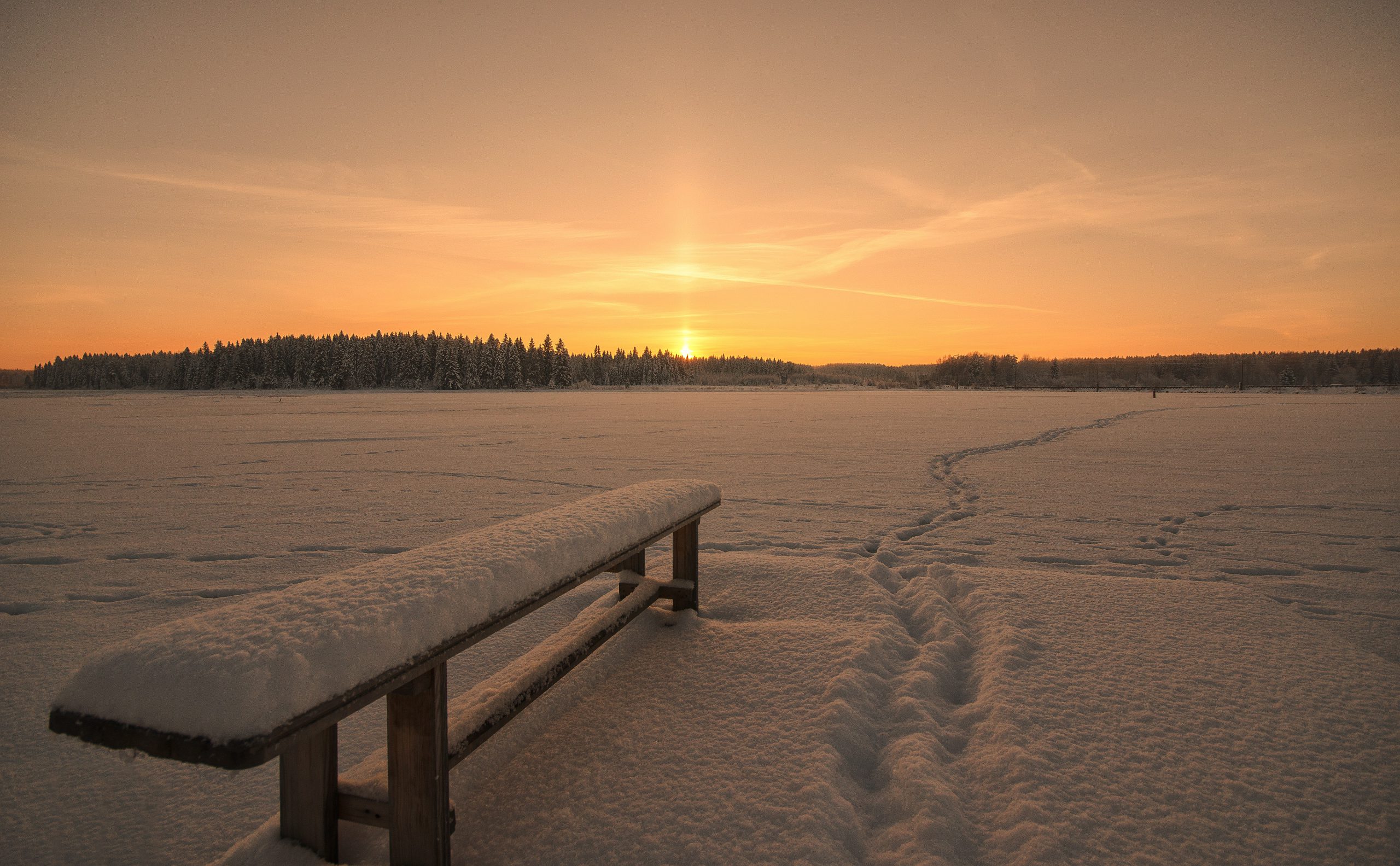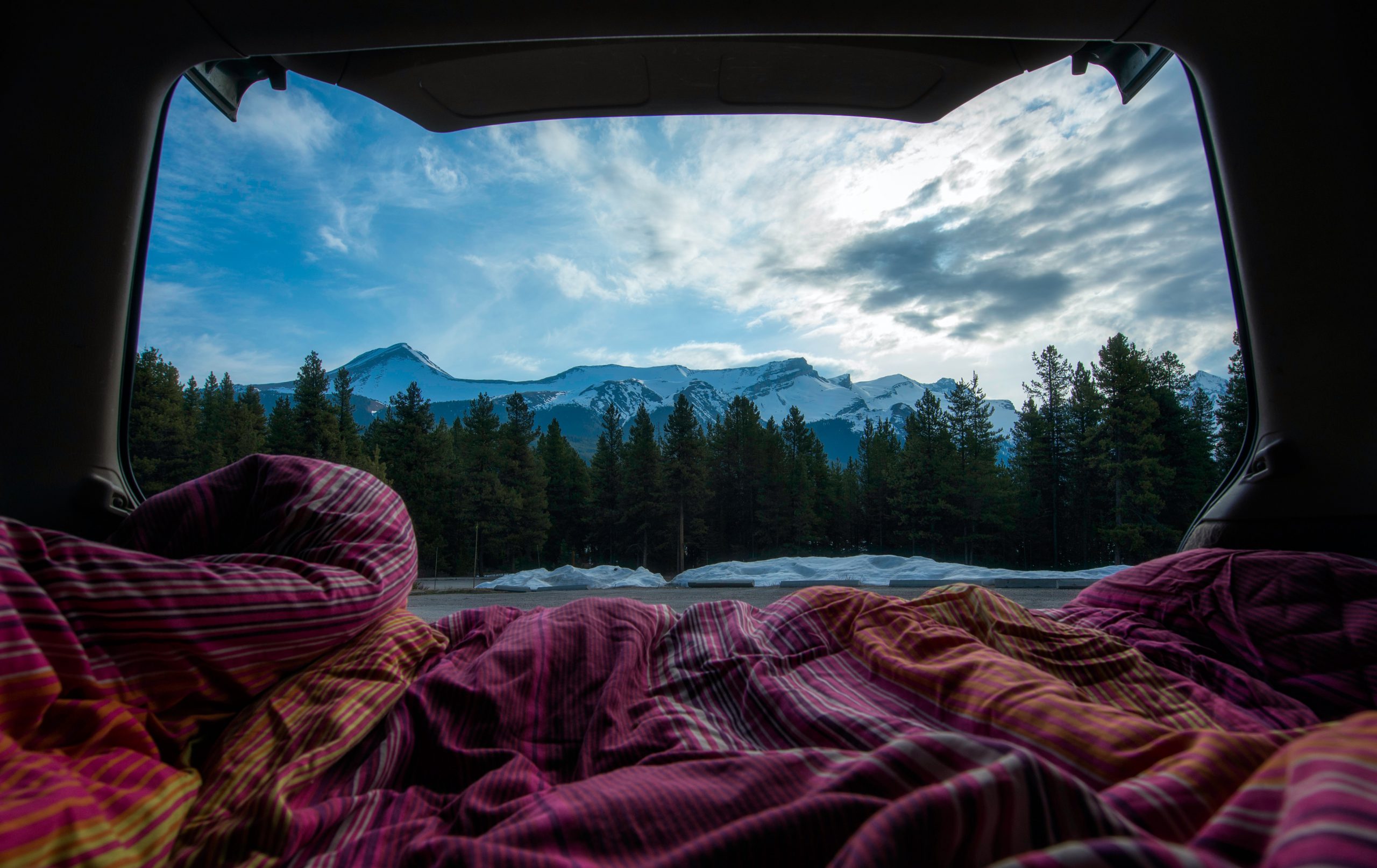Summer and autumn tend to be the preferred seasons when it comes to RV travel, but winter RV travel has just as much to offer if you know how to plan. Lower temperatures, crisp air, peaceful landscapes, emptier campgrounds, and no bugs are just the tip of the proverbial iceberg of perks for wintertime RV travel.

Winter offers plenty of fun opportunities for RV trips, but it presents different challenges to prepare for. We’ve assembled a list of things to do before heading out on your next winter RV excursion! If it feels like a lot of extra effort, just remember that your travel mates and future self will thank you when you’re warm and cozy during your winter escape.
Safeguard the Plumbing
To protect your pipes and fluid systems from freezing if the temperature dips below 32 degrees, take all the preventative measures you can. Apply heat tape to your RV’s water and sewage pipelines to help ensure the pipe and the liquid inside will not freeze. Some RVers also wrap valves in exterior access areas with heat tape since they may be vulnerable to freezing. It’s an easy step that will give you peace of mind!
In addition, add a small amount of purple specialty RV antifreeze to the RV holding tanks to decrease the chances of freezing. Contact Economy RVS if you’re trying to find an RV store in MD with a service center of professionals who can help you prepare your RV for winter.
Test the Furnace
Before you set out, test the furnace and clean the area around it with compressed air or a soft brush. If your RV only has a heat pump or heat fins, keep in mind those systems do not work their best when outdoor temperatures drop below 20 degrees Fahrenheit. If you plan to make winter trips a regular part of your lifestyle, you may want to install another heat source.
Examine and Enhance the Exterior
Before you roll out, check the window seals on your vehicle and re-caulk if needed. Check the weather stripping on each exterior door and replace it where necessary to prevent any chilly drafts while traveling. Insulated window coverings, such as reflective foil, are an inexpensive way to warm things up inside. Hanging heavy drapes in each RV window will also help insulate and cozy up your RV for winter.
RV skirts are one way to block cold air from being blown underneath the RV, which means your interior will stay warmer. Plus, they help protect any exposed water pipes and valves below. Some RVers prefer going the extra mile by cutting insulating foam boards (found at local hardware stores) to fit between the frame of the RV and the ground around the base of your vehicle. Putting in this snug barrier is a way to help insulate tanks, water lines, and the floor.
Protect the Fresh Water Hose
In the winter, use your RV’s internal freshwater tank, when possible, instead of connecting to a freshwater line at a campground. If you must use the freshwater hookup, consider purchasing a heated water hose to prevent any freezing or bursting. The heated water hoses are controlled by a thermostat and require AC power to function. All hoses and cables should be kept off the ground and out of the snow.
Odds and Ends to Consider
- Parking in a space where your stabilizing jacks will touch bare ground (instead of asphalt) can lead to the jacks freezing to the ground. To prevent this, travel with a set of wooden blocks to put below your jacks each time you park.
- A full tank is less likely to freeze than half-full tanks. For this reason, put off emptying tanks until they are full so they do not freeze.
- Clean any snow, ice, and frost off RV awnings. If ice and snow accumulate, the awning may be unable to roll up when you’re ready to leave. Ice can also be detrimental to slide gaskets, so you may opt to spray RV antifreeze on the gaskets to keep them retracting properly.
Pack an Emergency Kit
Emergencies can arise any time of year, so having extra provisions on hand is never a bad thing. Here are a few things to stock up on and keep in your RV for your winter trip:
- Tire chains
- Flashlights
- Snow shovel
- Waterproof gloves
- Extra propane
- Sleeping bags designed for zero-degree temperatures
- Five gallons of drinking water
- Extra food
- A camping stove that does not require propane
- A gasoline-powered generator
- Extra blankets
- Extra warm clothing
- Emergency GPS
- First aid kit
- Blow dryer (to use to defrost pipes and tanks)
- Cash
Double-Check Your Destinations
Chances are you’re already in the habit of checking the weather forecast before you travel, but wintertime trips are a great time to make it a regular practice. Winter storms can appear out of the blue in some parts of the country, so keep your eyes and ears out for warnings from local sources or the National Weather Service.
It also can’t hurt to make sure the campgrounds you’re heading to are actually open. Some campgrounds close for the season in September or October, so make sure you have a definitive resting point rather than making assumptions.

Find RV Stores in Maryland (MD)
If you’re ready to embark on a winter adventure and need to find RV stores in Maryland, head to Economy RVS in Southern Maryland. We’ve been in the RV business for more than 25 years and offer new and used travel trailers, fifth wheels, toy haulers, and expandable trailers.
Wherever you call home and whatever you have planned for this winter, we’d be happy to serve you! Our expert RV service team will gladly take care of your RV and make sure you’re ready to travel and make memories even in the harshest winter weather.
